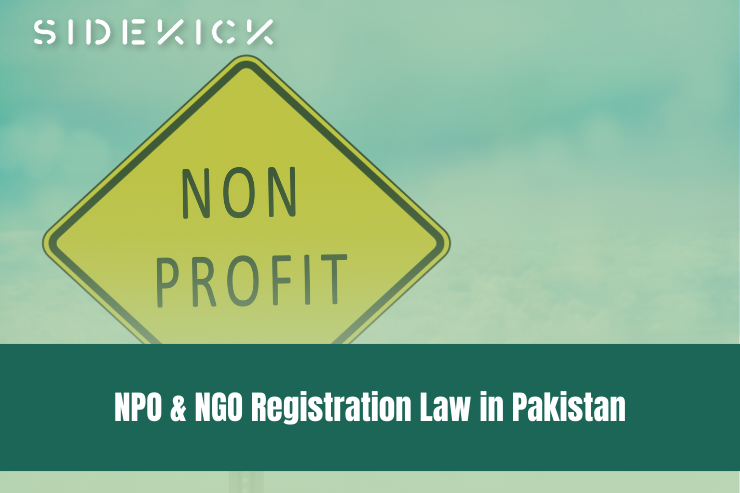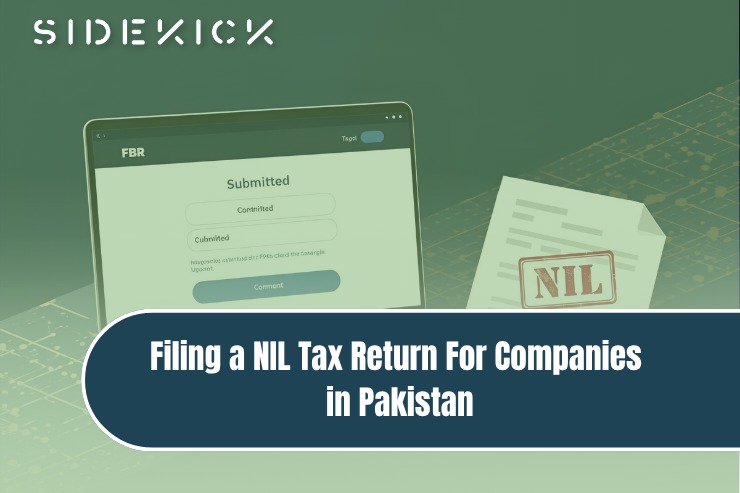NPOs and NGOs have a significant place in developing social transformation in Pakistan. They are essential for fighting poverty and enhancing access to social welfare, education, and healthcare. Even though these organizations are of great importance, the related processes for registering and managing such entities are very complex and must comply with numerous regulations.
The registration process of NGOs and NPOs in Pakistan is complex and overloaded. This article aims to simplify these laws and processes by explaining the laws, procedures, and requirements for their registration.
What Are NPOs and NGOs?
An NGO is a type of voluntary organization independent of government control. These organizations exist to address concerns such as human rights, healthcare, education, etc. NGOs offer on-ground initiatives, advocacy for a better life, and expanding awareness about the importance of such a change by bringing meaning to the better lives of marginalized and underprivileged communities.
An NPO, however, is a kind of organization for which profit generation need not be objective. Unlike for-profit companies, which distribute earnings to shareholders, surplus funds of NPOs are reinvested into carrying out the work of the organization. NPOs aim to uplift communities through projects carried out through donations such as funding, grants, or voluntary efforts, providing free education, healthcare, or community support programs.
NGOs (nongovernmental organizations) and NPOs (nonprofit organizations) act as very important support systems that fill the gaps left behind in areas where public service fails.
Legal Frameworks for NPO and NGO Registration in Pakistan
Organizations in Pakistan have several legal frameworks to choose from for registration, depending on their structure and objectives. Each framework comes with its own set of requirements, documentation, and regulatory authorities.
Societies Registration Act, 1860
This act is planned for societies that concentrate on charitable, instructional, scientific, or cultural causes.
Registration Authority: Provincial Registrar of Societies.
Required Documentation:
- It includes a Memorandum of Association (MoA) stating the organization’s goals.
- List of founding members (minimum seven members).
- Rules and regulations of the society.
- Address and contact details of the registered office.
- Minutes of the inaugural meeting.
- Identity documents of the founding members.
This ideal organizational structure focuses on anything cultural, academic, or charitable.
Voluntary Social Welfare Agencies (Registration and Control) Ordinance, 1961
This ordinance applies to organizations that provide direct social services for poor people, like welfare for youth and women.
Registration Authority: Social Welfare Department of the respective province.
Required Documentation:
- Application Form B (available through the Social Welfare Department).
- Objectives and governance of the organization as per its constitution.
- Names and addresses of office bearers (minimum of seven).
- Estimates of funding sources and plans for expenditures.
- Minutes of meetings that outline the formation of the organization.
- Copies of the ID of the office bearers and foundation members.
- Proof of registered office address.
This is the optimum choice for organizations that deliver direct welfare and social services.
The Trusts Act, 1882
It also provides for the establishment of a trust for charitable purposes, such as education, poverty relief, or medical relief.
Registration Authority: Provincial Registrar of Trusts.
Required Documentation:
- A Trust Deed clearly shows the trust’s objectives and responsibilities regarding its trustee and its beneficiaries.
- List of trustees and their contact details.
- ID documents of trustees and the settlor.
- Proof of ownership of trust property, if applicable.
- Registered office address of the trust.
This framework can be used by organizations where donors or founders seek a structured framework for how funds and assets are used for further charitable purposes.
Companies Act, 2017 (Section 42 – Non-Profit Companies)
This act enables the formation of such non-profit companies with a corporate structure engaged in education, charity, social services, the arts, and other socially beneficial activities.
Registration Authority: Securities and Exchange Commission of Pakistan (SECP).
Required Documentation:
- An application for a license to operate as a non-profit entity is submitted to SECP.
- Certified true copy of Memorandum and Articles of Association (MoA and AoA).
- Short form of promoters (usage of at least three), their CNIC copies.
- Financial plan and funding strategy.
- Proof of office address.
- Bank Maintenance Certificate
- Annual accounts (after registration for annual compliance).
This structure is appropriate for organizations that demand a formal corporate setup, credibility, and protection under company law.
NPOs and NGOs can register in Pakistan by documenting properly and complying with the regulatory authorities for successful and lawful operations.
Confused About NGO Laws in Pakistan?
Get in Touch
Fill out the form below, and we will be in touch shortly.
Steps for Registration
The Registration Procedure Depends upon the adopted legal framework. It is divided into the following:
Preparation of Documents:
The foundational documents, which include the Memorandum of Association, constitution, or trust deed that elaborates on the mission and objectives, governing body, and operating rules, are required to be drawn.
Application Submission
The application has to be filed with the appropriate authority, which can be either the SECP, provincial registrar or the Social Welfare Department, as per the adopted framework.
Verification:
Regulatory authorities check applications for compliance. They may also inspect premises and conduct background checks on key members.
Approval and Certification:
Once the application is approved, the organization is issued a registration certificate that authorizes it to operate legally in Pakistan.
Compliance and Regulatory Obligations
After registration, organizations have to follow compliance requirements of a continuous nature, including
Annual Reporting
Registered NGOs and NPOs must provide annual reports with audited financial statements and activity summaries to the respective regulatory bodies.
Registration Renewal
Depending on the registration law, organizations may be required to periodically renew their registration by producing updated documents and proof of having complied with the existing and recently enacted regulations.
Foreign Funding Regulations
NGOs that access foreign funding need to be registered under the government’s Policy for Local NGOs/ NPOs Receiving Foreign Contributions (2022). This will allow them to engage in their registered activities and submit highly regulated reports.
Violating these provisions or requirements can trigger fines, de-registration, and other restrictions.
Challenges and Best Practices
While the legal frameworks offer opportunities for formalization and credibility, most organizations face difficulties in dealing with bureaucratic processes. Some of the common issues include long approval times, complex documentation requirements, and stringent oversight for foreign funding.
Here are a few best practices to make registration as smooth as possible:
- Seek legal professionals or consultants who are well conversant with the registration procedure to avoid such delays and errors.
- It is important to understand the law and which structure best fits your goals and objectives. Choosing the wrong framework can eventually lead to operational challenges.
- Maintain transparency. Keep regulatory bodies, donors, and beneficiaries informed of your activities and finances.
Sidekick: Your Partner in NGO and NPO Registration
Now that you are keen to register an NGO or NPO in Pakistan, Sidekick will guide you through every step. Our lawyers make legal processes easier, give you the perfect framework for getting your NGO registered, and complete the process following all the legal standards.
Right from drafting some documents to contacting authorities or procuring a license, we take this hassle out for NGO/NPO registration. Trust Sidekick to help your organization thrive—so you can focus on what matters: making a difference. Contact us today!
Conclusion
Registering an NPO/NGO in Pakistan is very important for legitimacy and credibility, thus opening the floodgates to funding opportunities. With the help of an appropriate legal framework and compliance, organizations can make positive contributions to social development and community welfare. This is especially important in the face of current concerns about issues of transparency and accountability while receiving foreign contributions.
It would be more effective for people new to the process to look for expert advice and understand the legal landscape.







